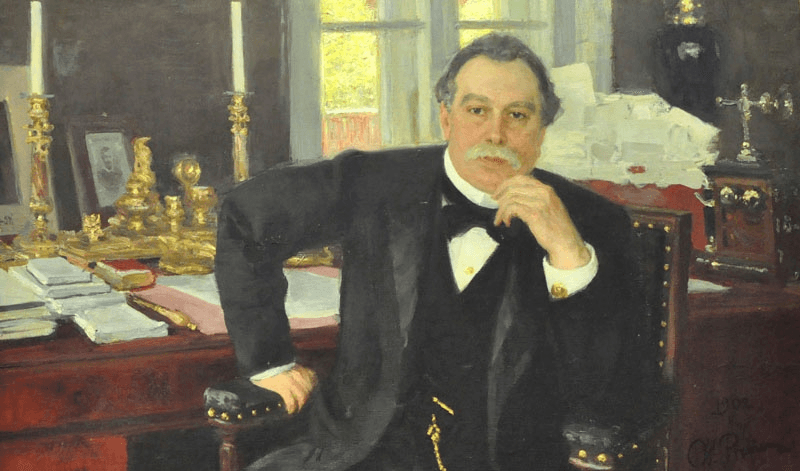Many attribute words about a low-cost, but effective and successful armed conflict, allowing the state to solve accumulated problems, to the Minister of Internal Affairs of the times of Nicholas II. We checked whether this attribution is correct.
Vyacheslav Pleve is credited with the authorship of the phrase about a “small victorious war” from a variety of sources: from the website Department of the Ministry of Internal Affairs of the Russian Federation for the Kaluga Region to former Prime Minister Mikhail Kasyanov in the book "Without Putin", from BBC to Republic. This attribution is also popular on social networks: relevant publications can be found in "VKontakte", LiveJournal And Twitter.
For the first time words about the need for a “small victorious war” attributed Plehve is a certain A. Morskoy in the book “The Outcome of the Russian Revolution of 1905 and the Government of Nosary”, published in 1911. The author says that the minister stated such a need in a conversation with General Kuropatkin. Allegedly, during an “intimate conversation”, statesmen argued about the expediency of war, and after that Plehve said: “Believe me, Alexei Nikolaevich, we need a small victorious war, otherwise it is impossible to keep the revolution.” According to Morsky, this fact is reflected in Kuropatkin’s memoirs, however, the description of the conversation between two officials contained in them is strongly different from retelling.
Another source in which these words can be found is the memoirs of Sergei Witte. In his memoirs, published in Berlin in 1922, the former chairman of the Committee of Ministers wrote: “The right-wing newspapers, which all the time set Russia against Japan, following the policy of Plehve, who said: “We need a small, victorious war to keep Russia from revolution,” naturally began to say in their justification that peace should not have been concluded, that if we had continued the war, we would have won.” Witte completed his memoirs in 1912, and Plehve was killed Socialist-Revolutionary Sozonov back in 1904, so he had no opportunity to comment on the publications of Witte and Morsky. By the way, there are reports that under the pseudonym A. Morskoy wrote Vladimir von Stein is a clerk at the Chancellery of the Academy of Sciences and Witte's literary agent.
How notes culturologist Konstantin Dushenko, contemporaries and colleagues of the two ministers question Witte’s words. For example, Vladimir Gurko, Plehve’s subordinate in the Ministry of Internal Affairs wrote, that his boss “definitely did not want this (Russian-Japanese – editor’s note), like all the other ministers and, of course, the sovereign himself.” According to Dushenko, this evidence can be trusted - “the gendarmerie department, as a rule, was least inclined to throw hats.”
Expressions similar to the Russian “small victorious war” appeared in other languages shortly before the conflict between Russia and Japan. First of all, we are talking about the Spanish-American War of 1898, which continued less than four months and ended with the capture of Cuba, Puerto Rico and the Philippines. American Ambassador to Great Britain John Hay in a letter to future President Theodore Roosevelt named this conflict with the words “a splendid little war”. Dushenko assumesthat Witte could have learned about this phrase from Roosevelt’s book “Description of the Spanish-American War” (1900) and adapted it to Russian realities, but we were unable to find such a text from an American politician. In 1899, Roosevelt published a book dedicated to those events. The Rough Riders, where there are no words splendid little war.
Thus, although even some of his contemporaries attributed the authorship of the verified phrase to Plehve, this happened several years after the murder of the minister. To date, no reliable evidence has been found that he spoke about a “small victorious war”. Moreover, a few years earlier, a very similar phrase appeared in English to describe the conflict between the United States and Spain.
This is not accurate
- K. Dushenko. Little victorious war
- M. Saevskaya. On the question of the origin of the phrase about a “small victorious war”
- S. Witte. Memories
If you find a spelling or grammatical error, please let us know by highlighting the error text and clicking Ctrl+Enter.







